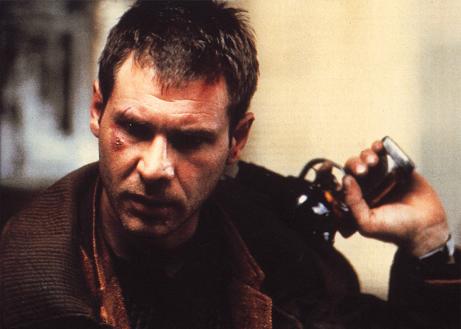When, and why, did American television and cinema viewers first fall in love with the Sociopath protagonist? Perhaps the audience was always there, nascent and ready to be born. My current favorite Sociopath television show is AMC’s Breaking Bad, the story of an ordinary, albeit resentful and self-loathing, married man who breaks out of his bourgeois cocoon to become a Methamphetamine dealer. His bourgeois name is the aptly constructed “Walter White,” representing the plain vanilla nature of his high school Chemistry teacher life in small town New Mexico. His alter ego name is “Heisenberg” (after Nobel winning German physicist Werner Heisenberg), chosen by White, to represent his genius in making the purest and best “Meth” ever seen in the Southwest and Mexico.

I think Coppola’s Godfather series created the modern heroic Sociopath. We rooted for Brando’s and Pacino’s characters, although Michael Corleone became unlikable by the end of Godfather II. Coppola was the first to romanticize the familiar character of the gangster in movies. But Quentin Tarantino perfected the generalized concept of the protagonist Sociopath. His breakout film was, of course, Pulp Fiction, a so-called dark comedy with such a wide variety of watchable sociopaths one could probably make a television series around virtually every major character in the film. In fact, the two strands of modern Sociopathic television and films can be plausibly traced to either Coppola or Tarantino. In the organized crime motif, for example, there is of course The Sopranos and the unfortunately canceled series Brotherhood. But shows like Dexter and Breaking Bad are in the dark comedy mode consistent with Tarantino’s sensibility.
Breaking Bad is in the midst of its third season. It is really hitting its stride. When the show was first promoted prior to its first season, I had no interest at all in seeing it. The premise seemed ridiculous and unappealing. Walter White is the epitome of an underachiever. He has his PHD in chemistry but is somehow stuck teaching high school students who have less than zero interest in the subject matter. He is diagnosed with cancer, which his insurance will not pay for. So he becomes a Meth dealer. This is how the show was promoted. Not only did I not want to watch it, I aggressively had an affirmative dislike for such an amoral and stupid theme. Plus who wants to watch a show where the main guy has cancer? Real life is bad enough; does one really want to watch a television show about it?
Sometime toward the end of the first season I was floundering around the cable channels in insomniac mode when I happened upon Breaking Bad. I believe it had followed an episode of Mad Men, which I have written about. So I watched it and became intrigued. I watched another episode and became hooked. The show has just the right mix of “comic” violence, fantasy, suspension of disbelief, and realism so required for Sociopathic entertainment.
For example, White’s brother-in-law, “Hank,” is a DEA agent obsessed with capturing Heisenberg, but has no hint that White is Heisenberg. In one scene, Hank is in Mexico tracking down a lead on the Meth distribution network. They were working with a drug dealer/informant who called himself “Tortuga,” or Tortoise. He liked to brag to others he was patient and not reckless, which is why he lasted so long, hence the nickname “Tortuga.”
They are tracking down the drug gang in the desert. In the distance they see movement in the tumbleweed. The group of American and Mexican agents carefully approaches the moving object, expecting an ambush. Slowly the moving object comes into view. It is a giant Tortoise. As it approaches they do many double takes as they try to take in what they see. Strapped to the top of the Tortoise is the actual head of Tortuga. After the initial shock, the agents go into macho mode making turtle jokes about Tortuga as the Tortoise strolls by. One of the agent stops the giant turtle to lift the head of Tortuga of its back. It’s a booby-trap. A bomb goes off, killing one agent and injuring several more. Hank survives but becomes psychologically scarred.
Breaking Bad has 2 million viewers. Stuck on AMC (I have 150 HD channels but AMC is not one of them) this is a pretty big audience. Going back to my opening question, why are these shows appealing? For me, the theme was repulsive. Then I watched it. I root for Heisenberg/White, even though he has been directly and indirectly responsible for many deaths. In real life I would want him dead yesterday. But in my sometimes fantasy life, I somehow identify with him. What’s that all about? Maybe “between the dust and love that hangs on everybody, there is a dead man trying to get out.” Or a Sociopath.
COMMENTS
Please let us know if you're having issues with commenting.